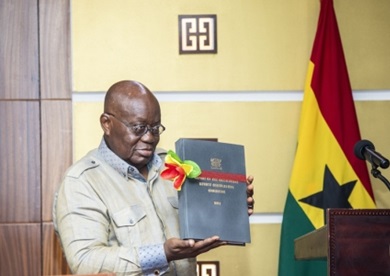The Constitutional Review Consultative Committee (CRCC) has called for a significant revision in Ghana’s appointment procedures for government positions, emphasizing the need for greater transparency and accountability.
The recommendations are part of a comprehensive report submitted to President Nana Addo Dankwa Akufo-Addo after an extensive review of the 2011 Constitution Review Committee’s report.

The CRCC suggests that all heads of Independent Constitutional Bodies (ICBs) should be appointed through an open, competitive process. This process would include mandatory parliamentary vetting and approval before the final appointment by the President.
The proposed reform aims to address stakeholder concerns regarding the executive’s influence over such appointments.

“Appointments of heads of ICBs, such as the Electoral Commission, the National Commission on Civic Education (NCCE), and the Government Statistician, should follow a transparent process to reinforce public confidence and uphold democratic principles,” the report stated.
Another major recommendation was capping the size of Parliament at 277 elected members. The committee proposed amendments to Article 93 and Article 47 of the 1992 Constitution to reflect this cap, noting that reducing the current number would lead to political disputes over which constituencies to eliminate.

“This recommendation avoids the potential acrimony of constituency reductions and maintains a reasonable limit, considering the current number of 276 constituencies,” the CRCC explained.
Additional key recommendations include:
- Appointment of Ministers: MPs appointed as ministers should vacate their parliamentary seats to focus on their executive roles.
- Declaration of Assets: The Auditor-General should verify asset declarations by public officers and issue certificates of legitimacy to enhance accountability.
- Tax Payment by the President: The President should pay taxes on salary and emoluments to set a leadership example.
- Cap on Ministers: The President’s appointments for ministers and deputies should not exceed 55.
The committee, chaired by Clara Kowlaga Beeri Kasser-Tee, adopted a participatory approach, consulting diverse stakeholders and drawing on submissions from institutions like the Kwame Nkrumah University of Science and Technology (KNUST) and the Centre for Democratic Development (CDD).

































